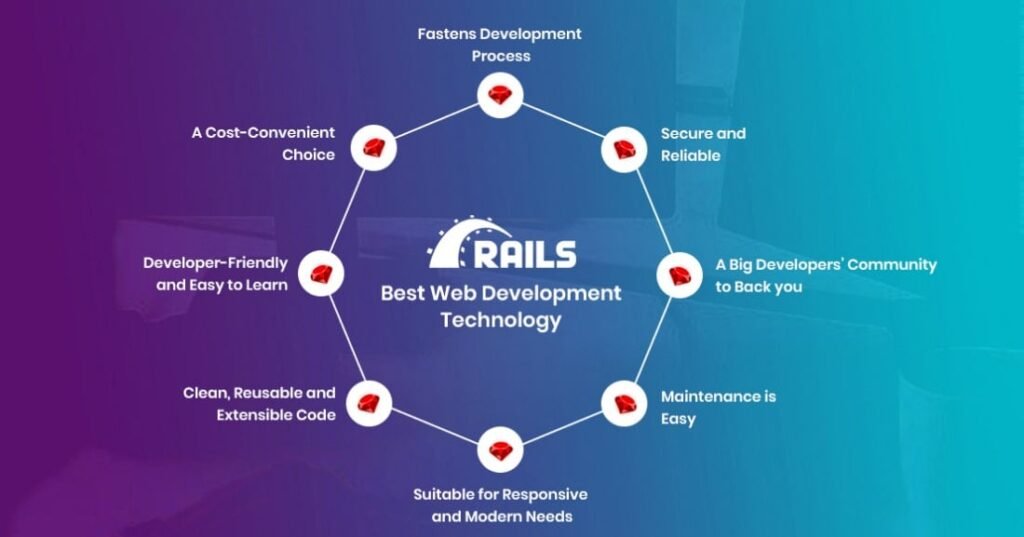[ad_1]
Ruby is a programming language that has gained immense popularity in recent years, especially in web development. Its rise can be attributed to its simplicity, flexibility, and the thriving community that supports it. In this article, we’ll explore why you should consider using Ruby in your web development projects.
One of the main reasons for the rise of Ruby in web development is its clean and elegant syntax. Compared to other programming languages, Ruby code is easy to read and write, making it more pleasant for developers. This simplicity enables developers to write code quickly, leading to faster development times and increased productivity. Additionally, Ruby’s syntax allows developers to focus on the problem at hand rather than getting tangled up in complex syntax.

Another factor that contributes to Ruby’s popularity is its versatility. Ruby is a general-purpose programming language, meaning it can be used for a wide range of applications, not just web development. Whether you’re building a simple website, a complex web application, or even a mobile app, Ruby has the tools and frameworks to get the job done. This versatility makes Ruby an excellent choice for both small and large-scale projects, catering to the needs of developers at different skill levels.
One of the standout features of Ruby is its emphasis on developer happiness. The language was designed with the belief that programming should be enjoyable, and this philosophy is reflected in every aspect of Ruby. From its intuitive syntax to its vast library of open-source gems, Ruby strives to make developers’ lives easier. This focus on developer happiness has fostered a passionate community around Ruby, with developers sharing their knowledge and supporting each other through forums, conferences, and online tutorials.
The Ruby community is also known for its commitment to testing and code quality. Ruby encourages developers to follow best practices such as using test-driven development (TDD) and writing clean, maintainable code. Testing frameworks such as RSpec and MiniTest help ensure that Ruby applications are robust and free from bugs. This emphasis on quality code has made Ruby a popular choice among developers who value clean, reliable software.
When it comes to web development, Ruby has an abundance of frameworks to choose from. The most notable of these is Ruby on Rails, also known as Rails. Rails is a full-stack web application framework that follows the principle of Convention over Configuration. This means that Rails automates much of the repetitive setup work, allowing developers to focus on the unique aspects of their applications. With its modular structure and extensive ecosystem, Rails has become a go-to choice for building web applications with Ruby.
Rails is renowned for its ability to make complex tasks simple. It provides built-in features for handling databases, routing requests, and managing sessions, reducing the need for developers to write boilerplate code. Rails also promotes the use of best practices, such as the Model-View-Controller (MVC) pattern, which encourages code separation and scalability. These features, along with the extensive documentation and community support, make Rails a powerful tool for web development.
Harness the Power of AngularJS Development: Unlock Your Business’s Potential
In conclusion, Ruby has witnessed a meteoric rise in web development due to its simplicity, versatility, and emphasis on developer happiness. Its clean syntax, versatility, and extensive community support make it an excellent choice for a wide range of web development projects. Whether you’re a seasoned developer or just starting on your coding journey, Ruby offers the tools and frameworks to bring your ideas to life. So why not consider giving Ruby a try and join the ever-growing community of developers who have fallen in love with this dynamic programming language?
[ad_2]






1 thought on “The Rise of Ruby in Web Development: Why You Should Consider It”